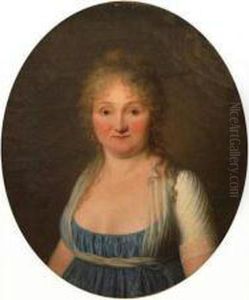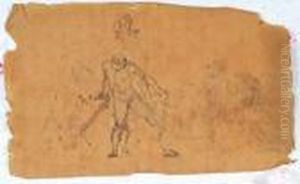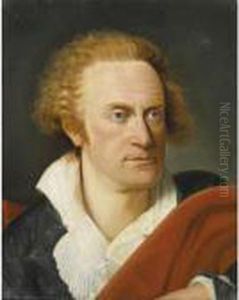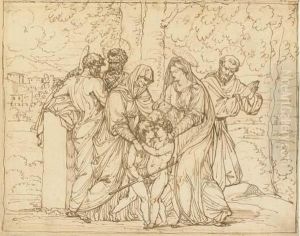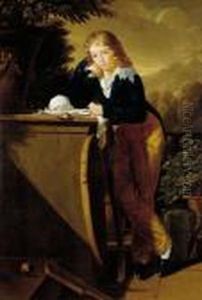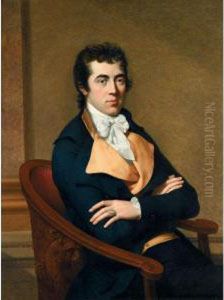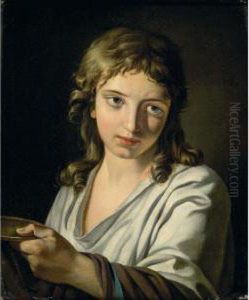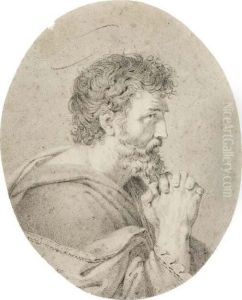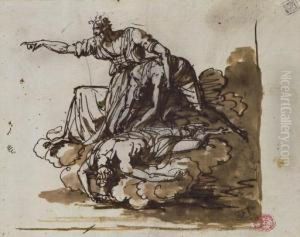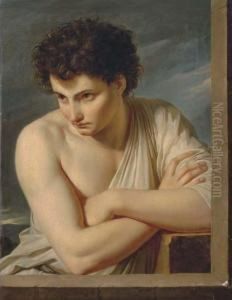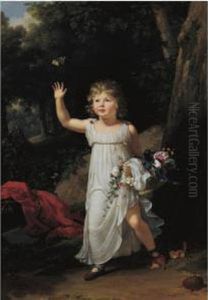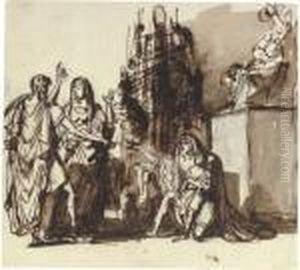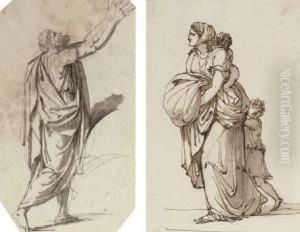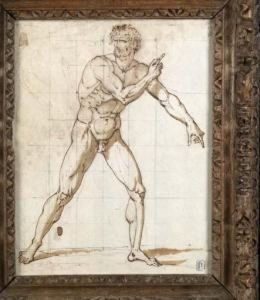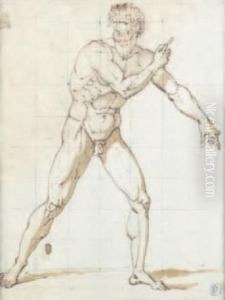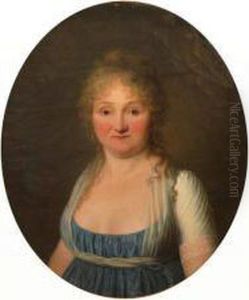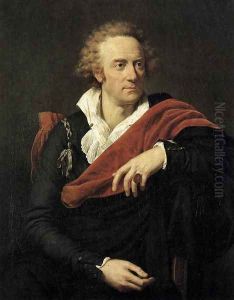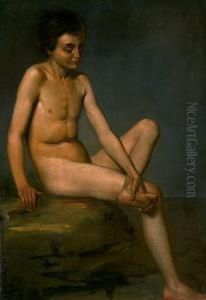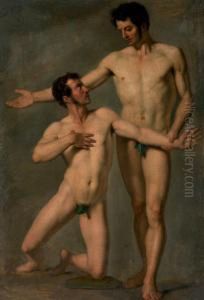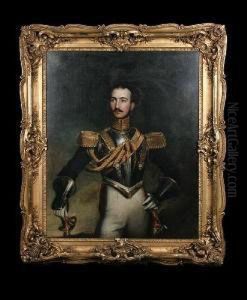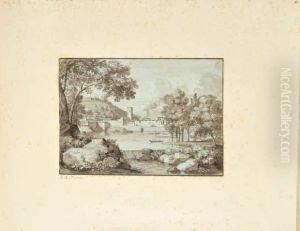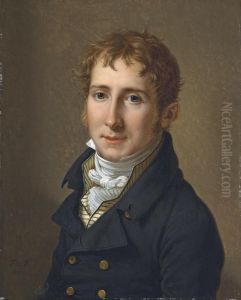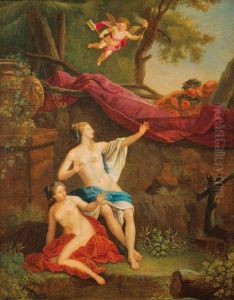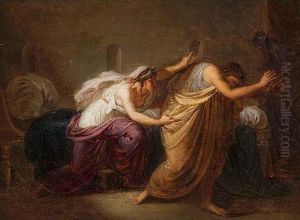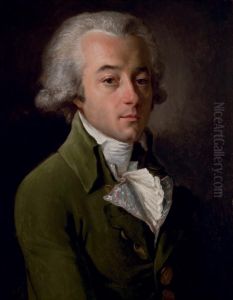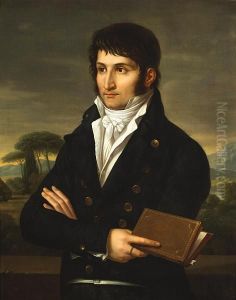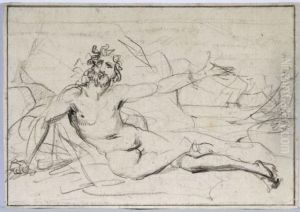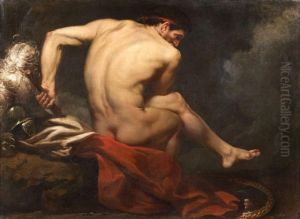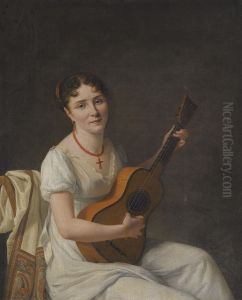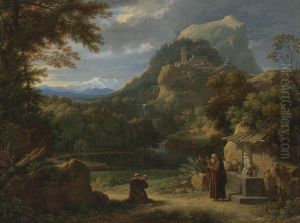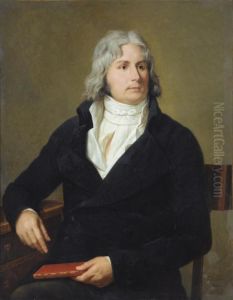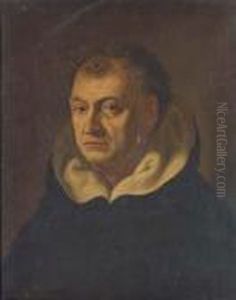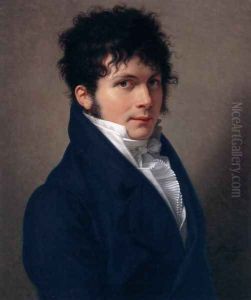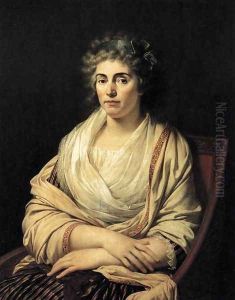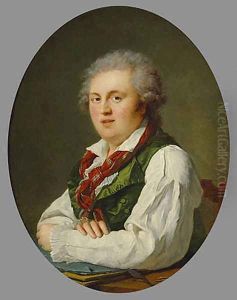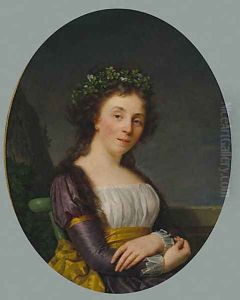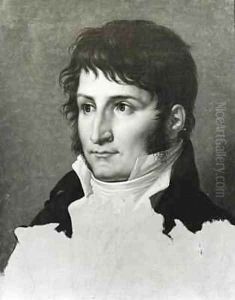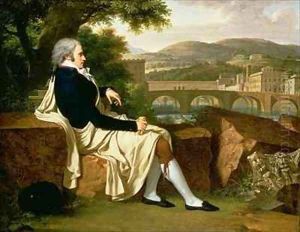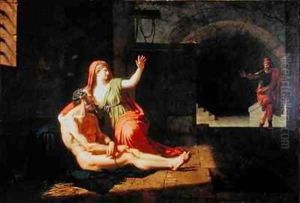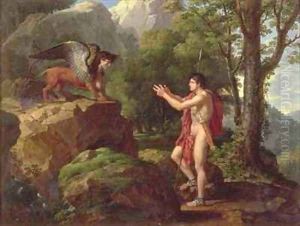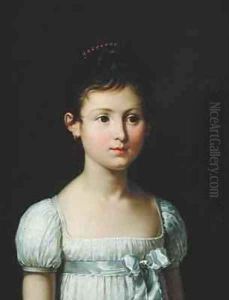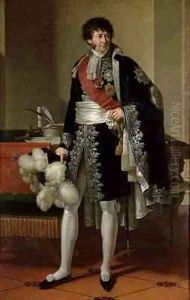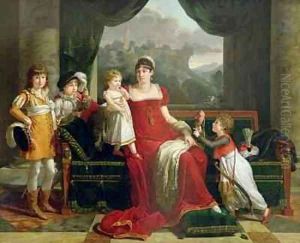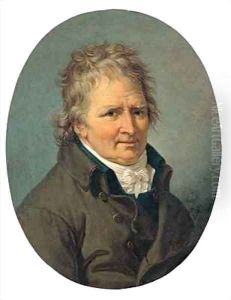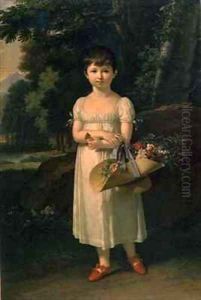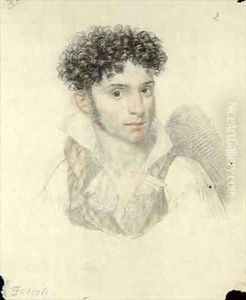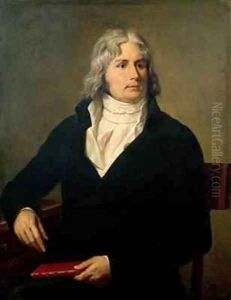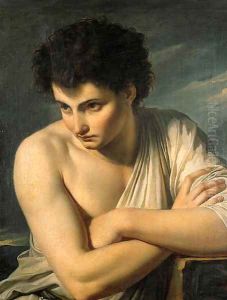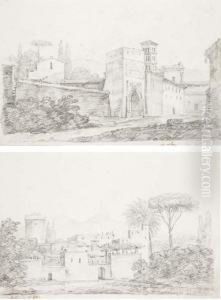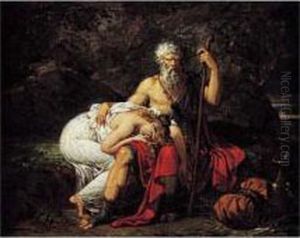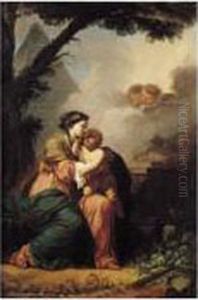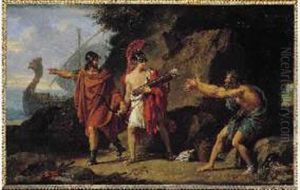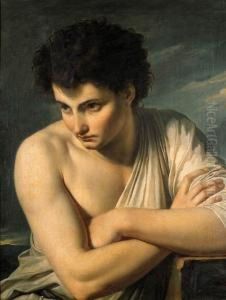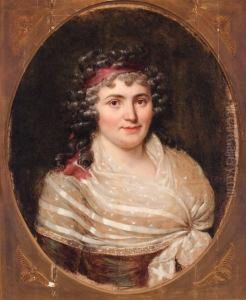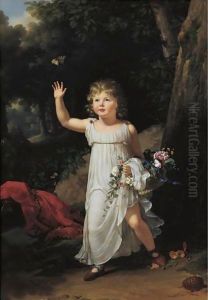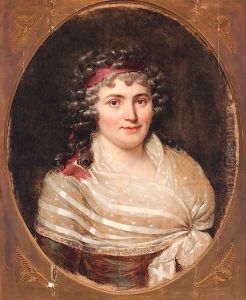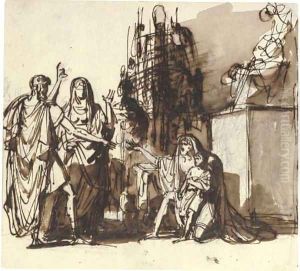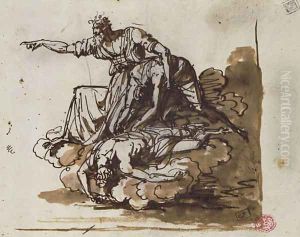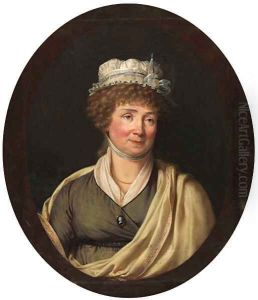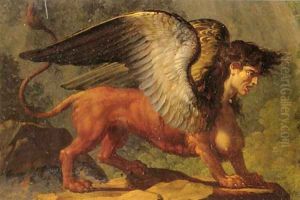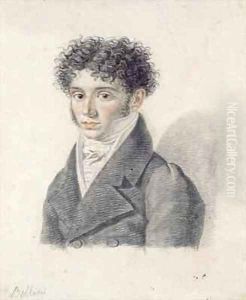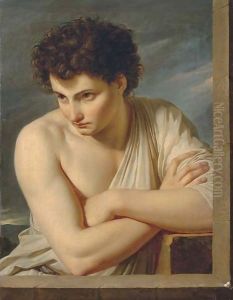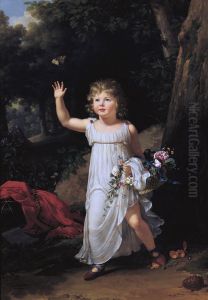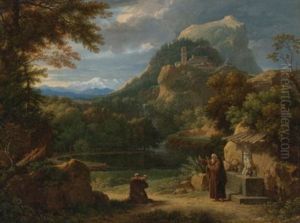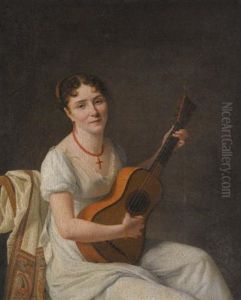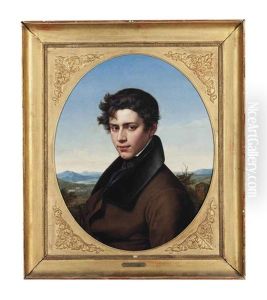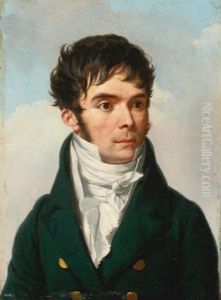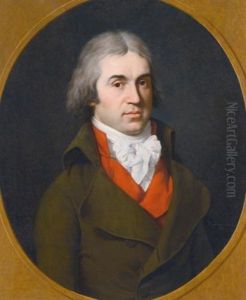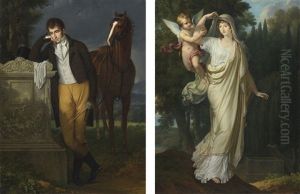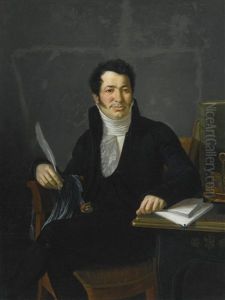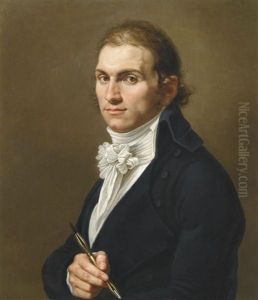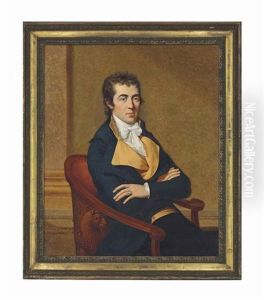Francois-Xavier Fabre Paintings
Francois-Xavier Fabre was a French painter of historical subjects. Born on April 1, 1766, in Montpellier, France, he was a prominent figure in the Neoclassical movement, which was characterized by a desire to return to the purity of the arts of Rome and a focus on classical subjects and techniques. Fabre received his initial training in art at the Academy of Montpellier, and later he moved to Paris to continue his studies. In Paris, he became a student of Jacques-Louis David, who was the leading French painter of the day and a key proponent of the Neoclassical style.
Fabre's own work came to reflect his master's influence and was noted for its clear composition, firm contours, and polished finish. During the late 1780s and 1790s, Fabre traveled to Italy, where he spent a significant amount of time in Rome. The Italian city, with its rich artistic heritage and vibrant expatriate artist community, had a profound impact on Fabre's style and subject matter. It was during his Italian sojourn that Fabre began to gain a reputation as a talented portraitist, capturing the likenesses of notable figures of the time.
In 1793, amidst the political upheaval of the French Revolution, Fabre settled in Florence, Italy. There, he became part of the cultural circle of the exiled French community. One of his most significant patrons was the French aristocrat and collector Louis, Count of Albany, also known as Vittorio Alfieri. After the Count's death, Fabre inherited a considerable collection of art and books, which laid the foundation for his later role as a collector and museum founder.
After the fall of Napoleon, Fabre's reputation continued to grow. He became a respected figure not just for his artistic talents but also for his collection of art and his scholarly contributions to the field. In 1824, he played a pivotal role in founding the Musée Fabre in his hometown of Montpellier. The museum was established based on his personal collection, which he donated to the city, and it remains an important institution for art in the region.
Francois-Xavier Fabre's contributions to art extend beyond his paintings. His efforts in art collection and his role in establishing the Musée Fabre have left a lasting legacy. He died on March 16, 1837, in Montpellier. His work and the museum he founded continue to be celebrated for their contributions to preserving and promoting the Neoclassical tradition and the broader scope of European art.
